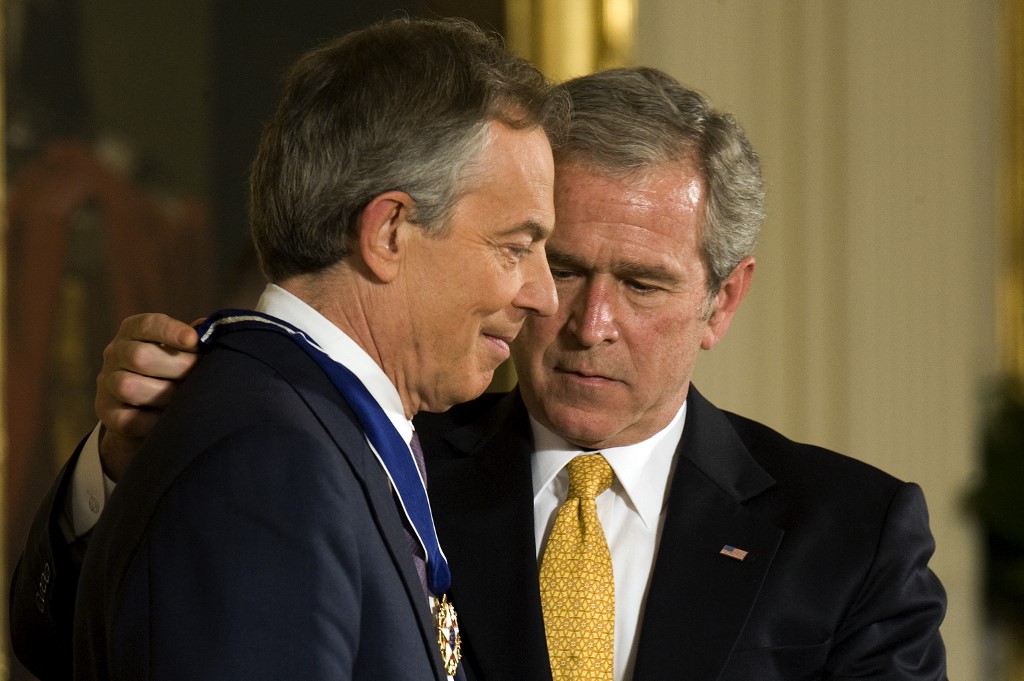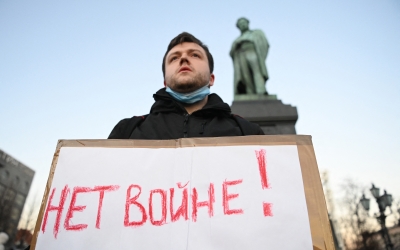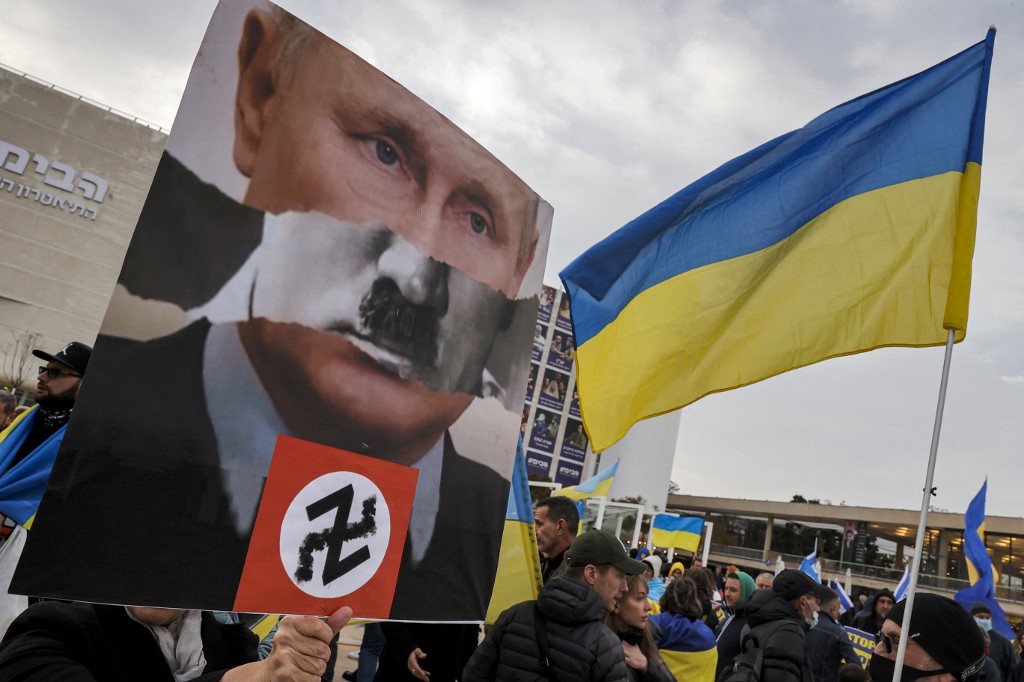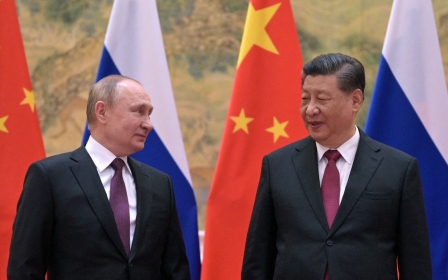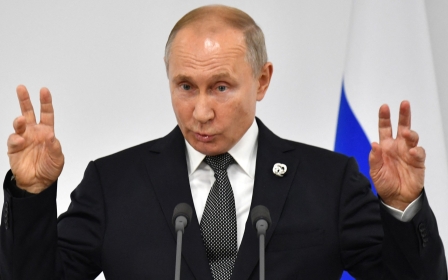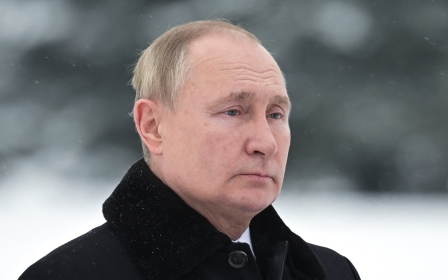Joe Biden has confirmed to Russia that the US really wants regime change
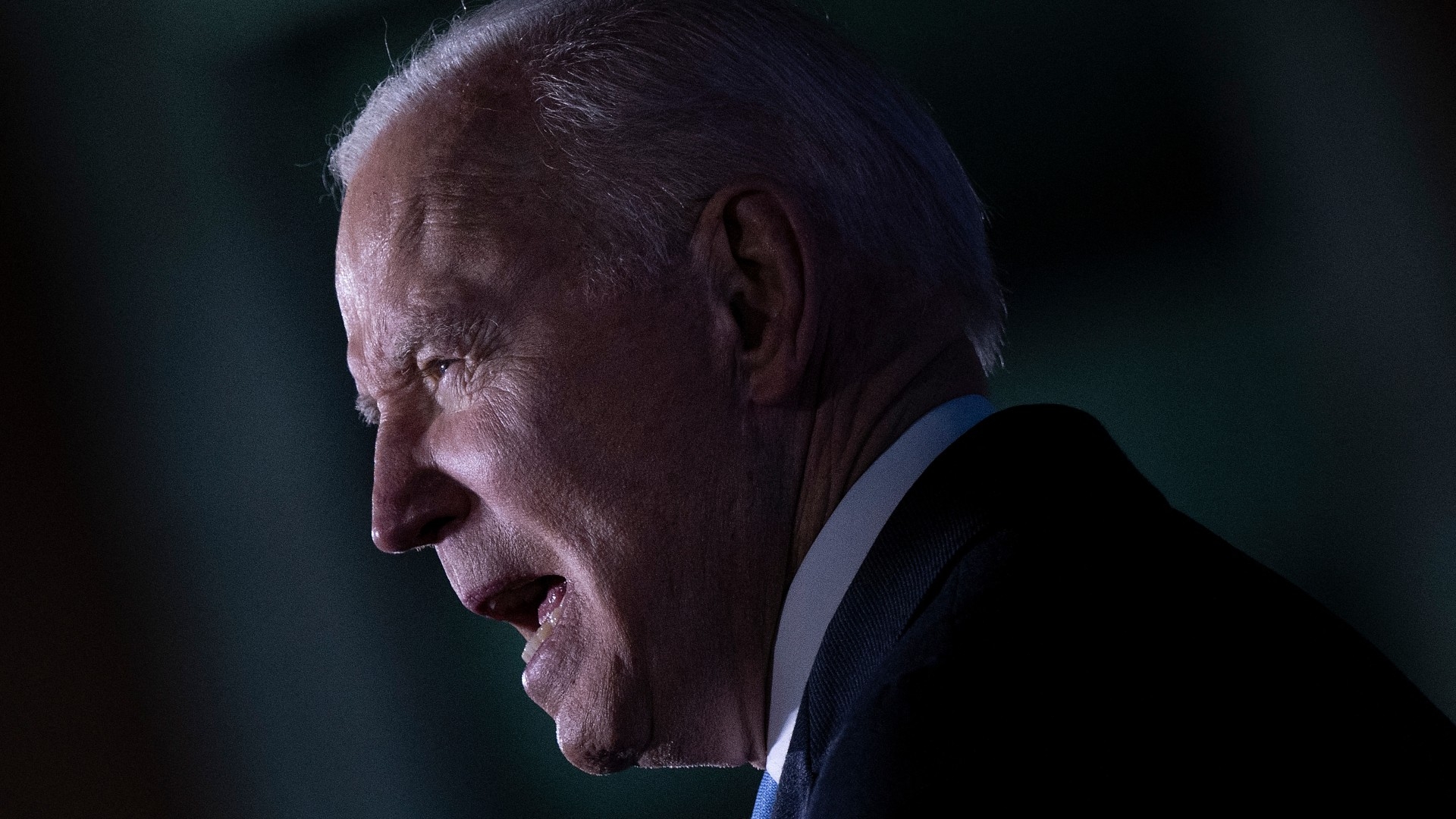
Did US President Joe Biden say the quiet bit out loud at the weekend when he indicated that Washington wanted regime change in Moscow? It may well have looked that way to his Russian counterpart, Vladimir Putin.
Earlier this month, Biden accused Putin of being a "war criminal", even though the charge drips with hypocrisy. Biden himself has played a critical role in Washington’s own historic war crimes: from ensuring Congressional authorisation of the illegal invasion of Iraq in 2003 to his part in the Obama administration’s expanded campaign of drone strikes across the Middle East.
Putin has only to look to other recent examples of Washington meddling around the globe to see that regime change has regularly been front and centre of its playbook
Then on Saturday, Biden characterised Putin as a "butcher" who "cannot remain in power". Perhaps unsurprisingly, Washington officials quickly backtracked, while European allies scrambled to limit the damage of comments suggesting the US might seek to depose the leader of a rival nuclear power. Biden himself backtracked later.
But Putin has only to look to other recent examples of Washington meddling around the globe – from Afghanistan, Iraq and Libya to Syria, Iran and Venezuela – to see that regime change has regularly been front and centre of its playbook. Based on that record, why would Putin imagine his own government would fare better?
US ambitions for regime change – supposedly justified by efforts to stop war crimes – have been at the heart of US foreign policymaking in the post-Soviet era. In fact, one could argue persuasively that it was just such policies that unleashed the chain of events that culminated in Russia’s illegal invasion of Ukraine.
New MEE newsletter: Jerusalem Dispatch
Sign up to get the latest insights and analysis on Israel-Palestine, alongside Turkey Unpacked and other MEE newsletters
Expansionist powers
A popular meme on social media is that, if Ukrainians were once unsure whether they wanted to join Nato, Russia’s invasion has retrospectively proved how justified it was to seek membership of the western military alliance: it would have warded off Russian aggression.
There is a circularity to this reasoning. One could equally argue that, if the Ukrainian government had opted for neutrality rather than flirted with Nato, offering to become effectively a beachhead for the US and its military allies on Russia’s border, then Putin might not have chosen to invade.
Hypothetical debates of this kind are fruitless. What can be known with much greater certainty is that, had Washington not flagrantly violated the prohibition on launching a war of aggression, as it did in Iraq, Putin would have struggled to rationalise his own war in Ukraine.
But it is not just that Biden and the other architects of the invasion of Iraq effectively nullified international law, making it easier for Putin to follow suit. They also confirmed suspicions in Moscow that the US and its European allies, such as the UK, were still expansionist powers, bent on imperial conquest.
Recent history had already shown Putin that he had every reason to distrust Washington’s claims that it has no malign intentions towards Russia. Biden simply confirmed that suspicion with his latest regime change remarks.
Had Washington not flagrantly violated the prohibition on launching a war of aggression, as it did in Iraq, Putin would have struggled to rationalise his own war in Ukraine
To understand how things look to the Kremlin, one has to recall a pattern of events following the fall of the Soviet Union. What attention has been paid to that period focuses on the question of whether Washington made promises that Nato would not expand into the former Soviet states. The documentary record suggests it did. Deception appears to have been at the heart of US designs.
But that was not the only, or even the chief, problem. Through the late 1990s, two self-serving and dangerous ideas became fused in the imagination of Washington’s foreign policy elite.
First, during Nato’s 78-day bombing campaign against Serbian forces during the 1999 Kosovo war, the US and its allies established the West’s right both to ride roughshod over international law and to do so in the name of a dubious humanitarianism - or a "responsibility to protect", as it was marketed at the time.
Notably, Putin has made similar claims in invading Ukraine, arguing that his aim is to “denazify” his neighbour and protect ethnic Russian communities in the Donbas region from attack by Ukrainian ultra-nationalists.
And second, the ideological ambitions of a group of supremely hawkish officials in Washington known as the neoconservatives came to dominate US foreign policy-making. The stage was set for their drive towards achieving "global, full-spectrum dominance" following 9/11.
‘Creative destruction’
In fact, the neocon plan to remake the world - starting with the Middle East - grew out of the void left by the collapse of the Soviet Union, Washington’s Cold War rival.
The neocons produced a series of documents through the late 1990s setting out their agenda, including perhaps the best known - A Clean Break: A New Strategy for Securing the Realm.
One of the movement’s leading ideologues, Michael Ledeen, an adviser to President George W Bush’s chief of staff, Karl Rove, explained the plan in terms of what he called a “creative destruction”, in which the US would “undo traditional societies”. He observed that the goal was “not whether but how to destabilise” states like Iran, Iraq, Syria, Lebanon and even Saudi Arabia.
Later, Bush’s secretary of state, Condoleezza Rice, lauded this destabilisation programme as the “birth pangs of a new Middle East”. Those pangs, it was made clear, involved removing leaders Washington abhorred.
International law was not on their side, so it had to be sidestepped. Washington created very obvious pretexts to launch its invasion of Iraq, by producing fake evidence that the Iraqi leader, Saddam Hussein, had weapons of mass destruction and was implicated in al-Qaeda’s 9/11 attack on New York. Bush and his British ally, Tony Blair, asserted entirely falsely that their invasion was justified as a “pre-emptive" war.
Putin, we should note, has implicitly invoked the doctrine of pre-emption too in invading Ukraine - to prevent the incursion of hostile Nato forces and Nato weapons into Russia’s “sphere of influence”. One could argue that his claim carries more weight than Washington’s in Iraq ever did.
Colour revolutions
What was intended by the neocons was the dissolution of those authoritarian regimes in the Middle East most resistant to US hegemony - states that had been created only a century earlier by the then-dominant colonial powers of Britain and France to serve their own interests: Iraq, Syria, Libya.
In Washington, the new rhetoric was about colour revolutions and bringing democracy to the Middle East - a spin on the humanitarianism invoked to justify Nato’s illegal actions in Kosovo. But the real goal was quite different, and its ultimate targets were the potential rival superpowers of Russia and China.
The aim was to make concrete Bush’s "Us and Them" doctrine. States would have to choose: either to become vassals of the new US global empire or face the fate of those belonging to a supposed "axis of evil".
The intention in the Middle East was Balkanisation. The US would invade and smash the central institutions of authority in any resistant state, leaving only internally divided societies
The intention in the Middle East was Balkanisation. The US would invade and smash the central institutions of authority in any resistant state, leaving only internally divided societies whose sects or tribes could easily be made to turn on each other.
The destruction of the old colonial set-up - under the slogan of a "war on terror" - was supposed to usher in a new era in which the US would control the planet’s key resource: oil. In the process, rivals like Russia and China would find themselves isolated and weakened, surrounded by either US client states or failed states.
That game plan proved much harder to realise in practice than anyone in Washington appears to have imagined. Afghanistan and Iraq became so-called "quagmires". The US army quickly became over-extended. In a range of arenas, from Libya, Syria and Iran, to Venezuela and Yemen, Washington was forced to fight chiefly through proxies.
Doubtless, the most important lesson learned by Putin occurred in Syria. Its president, Bashar al-Assad, requested help from the Russian military after popular protests erupted in 2011 and soon morphed into a civil war. In no time, militants linked to al-Qaeda and the Islamic State (IS) group were flooding into Syria to take on the Syrian army alongside local fighters.
Even though al-Qaeda and IS were supposed to be the sworn enemies of the United States, Washington quickly revised its allegiances. Through allies in the Gulf, Israel and Europe, the US worked behind the scenes to assist, fund and arm the militants as they broke Syria apart into various zones of control.
Syria survived barely as a state only because of Russia’s prolonged intervention.
Russia's bulwark
In recent years, the question Putin doubtless asked himself was this: What were the US and Nato’s real intentions in cosying up to Ukraine, long regarded as Russia’s geographic bulwark against invasion? In reaching his conclusion, Putin would have had every reason to factor in the following contexts:
* Nato has been relentlessly expanding across eastern Europe to Russia’s very borders, despite promises not to do so;
* The prevailing agenda in Washington’s foreign policy elite is still a neocon one of global military dominance, encircling and isolating Russia and China to prevent them from becoming rival superpowers;
* Washington has shown itself ready to break international law on the pretence of humanitarianism and ally even with its enemies to weaken states outside its influence that are close to Russia;
* And a long-running campaign in the West, culminating in evidence-free claims that Donald Trump colluded with the Kremlin, has sought to portray Putin as an evil mastermind stealthily destroying western democracy.
There is an argument to make, aside from questions of international law, that Putin made a strategic blunder in invading Ukraine.
Assuming the factors above are in play, Moscow should have been aware that Washington’s goal, following a Russian invasion, would not be to find the best solution for Ukraine. Very obviously, that would require peace negotiations whose minimally acceptable terms for Russia are a commitment from Ukraine to neutrality.
Instead, Washington has used Russia’s invasion to present Putin even more clearly as uniquely evil, a new Hitler, who cannot be negotiated with. At the same time, every effort has been made to distract western publics from concluding that Putin’s crimes are similar to – and, more significantly still, derived from – the West’s.
Washington has also emphasised the humanitarian plight of Ukraine, while actively seeking to make its situation worse, not better.
The US appears to have been playing a central role in dissuading Kyiv from making concessions that are inevitable if the war is to come to a quick conclusion. Instead, what the Nato countries led by the US have done is flood Ukraine with weapons to take on the Russian army.
Reality has been turned on its head, with the media claiming that more and bigger arms to Ukraine will save lives rather than drag out the fighting and increase the bloodshed.
Economic war
As happened earlier in Syria, Washington is gradually turning Ukraine into a proxy war.
The goal is not to ease Ukraine’s plight, or bring the two sides to the negotiating table, but to turn it into another quagmire for Russia, draining Moscow of manpower, firepower and treasure, just as the US partially succeeded in doing in Syria - and long before that, in the Soviet era, in Afghanistan.
This approach to rivals on the world stage has a long pedigree in Washington. In 1941, a few years before he became president, Harry Truman described the aim of the US in the Second World War as to bleed both Germany and Russia: “If we see that Germany is winning the war, we ought to help Russia; and if Russia is winning, we ought to help Germany, and in that way let them kill as many as possible.”
The [US] goal is not to ease Ukraine’s plight, or bring the two sides to the negotiating table, but to turn it into another quagmire for Russia
What is emerging is a Nato war against Russia on the cheap, with Ukraine serving as the battlefield and Ukrainians paying the price. A further advantage for Washington is that it can weaken Russia militarily in Ukraine while avoiding a direct confrontation with another nuclear power.
The more the Russian army struggles in Ukraine - and fails to achieve its minimal demands for mutual security guarantees in Europe - the more it will lash out with the kind of destructive power the US unleashed on Fallujah in Iraq and Israel regularly inflicts on Gaza.
That is a win for the US, too. Images of wrecked cities such as Mariupol, of hospitals being bombed and of millions of Ukrainians displaced by war resonate with European audiences far more strongly than they do when it is “Arabs” fleeing our bombs.
As a result, outraged western publics will be readier to make the sacrifices - already being felt in a rise in energy bills and at fuel pumps - needed as Washington wages war against Russia on a second front: economic sanctions. And the aim of all of this - Russians will most likely conclude after Biden’s statement at the weekend - is to overthrow their government.
Which paradoxically will echo in reverse the popular western meme on social media. It will confirm to Russians that Putin was indeed right to invade Ukraine - to belatedly stop in its tracks Washington’s malign intentions towards Russia. Both sides will have reasons to entrench rather than compromise.
And for that reason alone, the US has to take a big share of responsibility for the horrors currently unfolding – and those still to come – in Ukraine.
The views expressed in this article belong to the author and do not necessarily reflect the editorial policy of Middle East Eye.
Middle East Eye delivers independent and unrivalled coverage and analysis of the Middle East, North Africa and beyond. To learn more about republishing this content and the associated fees, please fill out this form. More about MEE can be found here.



